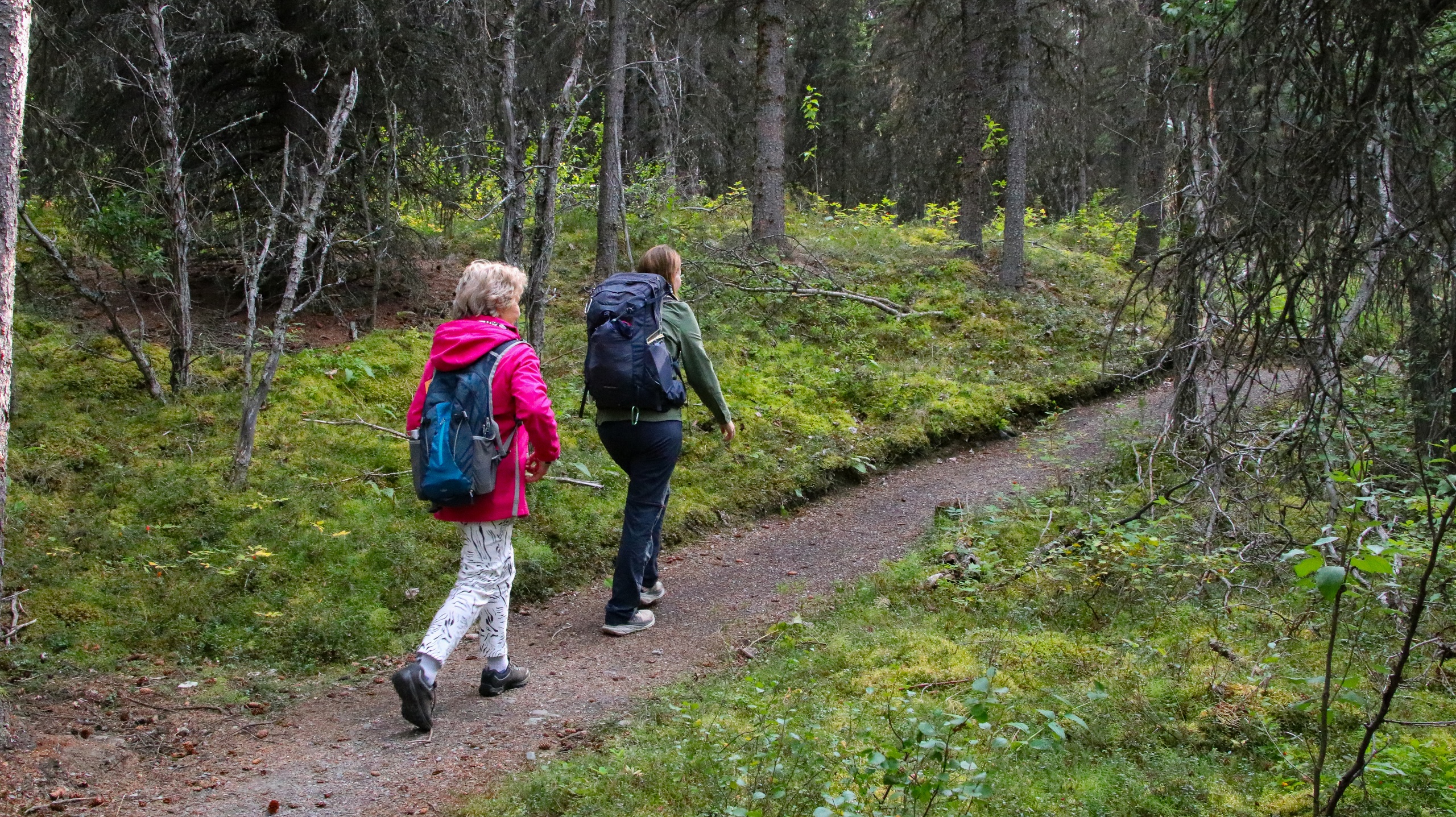Walking Among Giants: A Hiker’s Guide to Redwood National Park
Mist, ferns, and the tallest trees on Earth—plan your perfect redwoods day with smart routing, seasonal savvy, and trails that deliver.
Dawn slides in quietly on California’s far North Coast, a silver-blue light combing through the canopy as if the forest is taking a deep breath. On the floor of Redwood National Park, fog threads itself between trunks the size of lighthouses, the air cooled by the Pacific just over the ridge. The trail keeps its own cadence—soft, hushed, a green aisle padded by duff and redwood sorrel. Step into it and the world narrows to scent and sound: clean cedar, creek murmurs, and the gentle hush of ferns that seem to nod you forward.
Trail Wisdom
Start With the Parkway
Drive the Newton B. Drury Scenic Parkway early to spot Roosevelt elk in the meadows and to snag parking at popular trailheads.
Waterproof Footing Wins
Fern Canyon involves multiple shallow creek crossings—wear waterproof hikers or bring sandals and a small towel for comfort.
Permits and Reservations
Tall Trees Grove requires a free day-use permit; Fern Canyon/Gold Bluffs Beach may require reservations and fees in peak season—check park alerts before you go.
Layer for the Marine Layer
Fog and wind can swing temps quickly; carry a lightweight rain shell and a warm midlayer even on sunny forecasts.
Local Knowledge
Hidden Gems
- •Revelation Trail near Prairie Creek Visitor Center—short, immersive, and often overlooked
- •Trillium Falls Trail—moderate loop with old-growth stands and a photogenic cascade
Wildlife
Roosevelt elk, Banana slugs
Conservation Note
The parks lead large-scale restoration of previously logged lands, removing roads and replanting to reconnect habitat. Stay on trails and avoid trampling sensitive redwood sorrel and nurse logs.
Redwood National and State Parks safeguard some of the last old-growth redwood forests after extensive 19th- and 20th-century logging; the area is also the ancestral homeland of Yurok and Tolowa Dee-ni’ peoples.
Seasonal Guide
spring
Best for: Wildflower spotting, Cool, quiet trails
Challenges: Mud and slick roots, Unpredictable rain
Fresh greens and fewer people define spring. Expect damp conditions and carry traction-minded footwear.
summer
Best for: Long daylight hikes, Fern Canyon access
Challenges: Crowds and limited parking, Foggy, cool mornings
Peak season brings marine-layer mornings and busy trailheads. Reserve Fern Canyon/Gold Bluffs Beach and start early.
fall
Best for: Clearer skies, Fewer crowds
Challenges: Elk rut—keep distance, First big storms possible
Often the best weather window: crisp air, polished views, and quieter trails. Remain elk-aware in meadows.
winter
Best for: Dramatic storm watching, Lush, mossy forests
Challenges: Heavy rain, Trail blowdowns and flooding
A moody, beautiful season with high surf at Gold Bluffs Beach. Check closures and dress for soaking conditions.
Photographer's Notes
What to Bring
Waterproof Hiking ShoesEssential
Creek crossings and dew-soaked trails make dry, grippy footwear a smart choice.
Lightweight Rain ShellEssential
Fog and surprise showers are common; a packable shell keeps you warm and dry.
Offline Maps (GPS App or Paper Map)Essential
Cell service is spotty; download maps or carry a park map to navigate junctions confidently.
Trekking Poles
Helpful on slick, rooty sections and for steadier creek crossings in Fern Canyon.
Common Questions
Do I need a permit for Tall Trees Grove?
Yes. A free day-use permit (with gate code) is required and can be obtained online or at the Thomas H. Kuchel Visitor Center; parking is limited.
Are dogs allowed on trails?
Dogs are not permitted on most trails in Redwood National and State Parks. They are allowed on certain beaches and roads (e.g., Freshwater Lagoon Spit, some areas of Gold Bluffs Beach). Always check current regulations.
What’s the best time of day to hike?
Early morning offers quieter trails, better wildlife viewing, and easier parking. Fog often thins late morning into midday.
Is Fern Canyon open year-round?
Generally yes, but access can be limited by storms, high creek levels, and seasonal road closures. In peak season, a day-use reservation is often required.
Can I camp in the park?
Yes. Nearby state park campgrounds include Elk Prairie, Gold Bluffs Beach, Jedediah Smith, and Mill Creek (seasonal). Backcountry camping requires a free permit.
How far is Redwood National Park from San Francisco?
Roughly 320 miles (5.5–7 hours by car) depending on route and traffic. The closest airport is ACV (California Redwood Coast–Humboldt County) near McKinleyville.
What to Pack
Waterproof hiking shoes for creek crossings; lightweight rain shell for fog and drizzle; offline map or paper park map due to spotty service; insulated bottle with 1–2 liters of water to stay hydrated in cool, dry air.
Did You Know
The tallest known tree on Earth, a coast redwood named Hyperion at 380 feet, stands within Redwood National Park—its exact location is kept confidential to protect the fragile environment.
Quick Travel Tips
Arrive by 8 a.m. for parking at popular trailheads; check park alerts for Fern Canyon reservations and Tall Trees permits; drive the Newton B. Drury Scenic Parkway instead of Highway 101 for slower, scenic access; bring cash or card for state park day-use fees at Gold Bluffs Beach.
Local Flavor
Refuel in Trinidad at Moonstone Grill for coastal views and fresh seafood, or hit Trinidad Bay Eatery for clam chowder and a slice of pie. In Arcata, grab coffee and a bagel at Los Bagels, then toast the day at Redwood Curtain Brewing with a West Coast IPA. If you’re staying in Crescent City, look for local Dungeness crab (in season) and a sunset stroll on the harbor jetty.
Logistics Snapshot
Closest airport: ACV (California Redwood Coast–Humboldt County Airport), 35–60 minutes to most trailheads. Main access via Newton B. Drury Scenic Parkway off US-101. Cell service is limited to visitor centers and towns. No entrance fee for the national park; Tall Trees Grove requires a free permit; Gold Bluffs Beach/Fern Canyon may require day-use reservations and fees in peak season.
Sustainability Note
These forests are part of a World Heritage Site. Stay on established trails, pack out all trash, keep 25–100 yards from elk, and skip off-trail tree visits—soil compaction and trampling damage root systems that keep these giants standing.
Continue Reading

Canyon Wave: Rafting Denali’s Glacial Heart on the Nenana River
The Nenana River doesn’t whisper—it urges you forward. On the Canyon Wave run, you’ll punch through crisp, glacial rapids beneath Denali’s ramparts, trading roadside views for a front-row seat to Alaska’s wild hydraulics. Cold water, big smiles, and a canyon that knows how to keep pace.
Healy, Alaska

Chasing Light in Denali: An Afternoon Hike Across Taiga and Tundra
Trade the tour bus for tundra. This guided afternoon hike threads from shadowed spruce to open ridgeline, where Denali’s valleys breathe wide and the wind calls the cadence. Come for the views, stay for the stories beneath your boots.
Denali Park, Alaska

